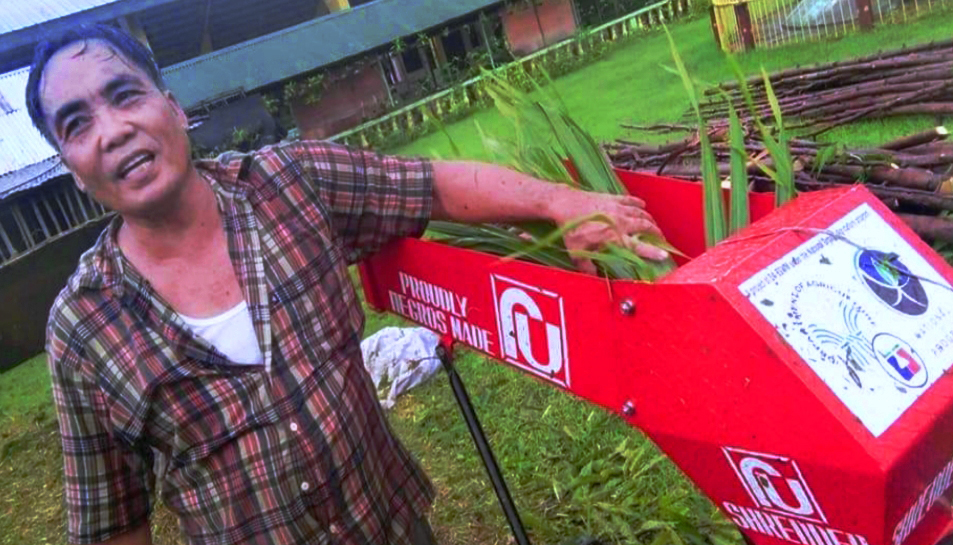“Volunteerism is a way of life to me. It is my guiding principle, just like what I learned during my scouting days, which is to ’do good deeds daily’,” Andrew Cudal Tolentino, Principal I of Cambitala Elementary School in Pantabangan, Nueva Ecija, shared.
Even before he joined the government service, Principal Andrew has been a bold advocate of environmental conservation and preservation, as well as the development and promotion of local eco-tourist spots in Nueva Ecija through the non-government organization Ozone Cell Development and Communication, which he founded. However, his NGO eventually closed down due to lack of financial support.
As a former president of his own organization for 20 years, Principal Andrew finds it humbling to work as Teacher I at Gabaldon Elementary School in Nueva Ecija. He rose above the challenges as a novice public school teacher. Through the support of the local government units (LGU), he started establishing elementary and integrated schools in areas where minorities and families whose incomes fall below the poverty threshold reside.
Principal Andrew rose through the ranks and became a school head, which he considers his toughest journey in the education sector, because he could not just implement his plans and goals without the readiness of the school personnel and the community. It took him years before he finally engaged the LGU and the community members to help make the environment cleaner, greener, and sustainable.
“When the LGU in Pantabangan, Nueva Ecija heard that our projects are within their means, they supported these. Not only in Pantabangan but also in nearby municipality of Rizal that granted us 10 hectares of public land where we expand sustainable development projects. Most of these start with what the people have,” Principal Andrew explained how he has convinced the LGUs to support his initiatives.
Volunteer services
One of Principal Andrew’s volunteer works consist of project on reforestation which includes seedling production, establishment of planters association, vegetable and root crop farming, zero foul smell hog raising, native chicken production, soy milk production, and tinapa and salted eggs production. His other volunteer projects are carabao rearing, and establishing schools in marginalized communities.
During his stint at Marikit, Sampaloc, and Cambitala Elementary Schools, Principal Andrew introduced initiatives such as Vermin Culture Production, School Greening Program, and Trust for Sustainable Living. He also led the Gulayan sa Paaralan and Brigada Eskwela. Among the list of elementary and tribal schools he helped establish and improve are Gabaldon, Sitio Tuli, Cambitala, Sitio Mabaldog, and Sitio Pinagsanghan, all located in the Schools Division of Nueva Ecija.

The 57-year-old school principal is indefatigable. He even journeys to far-flung tribal communities to organize non-formal learning sessions during Saturdays and Sundays. Despite his age, he exudes euphoria and zealousness that prompt him to do more volunteer services. “I feel happy that at least I did something that affect and inspire people,” Principal Andrew enthused.
Awards and recognition
Principal Andrew’s volunteer effort was finally recognized when he was awarded third place in the regional level of the National Economic Development Authority’s (NEDA) Search for Outstanding Volunteers 2018.
Cambitala ES likewise bagged the following awards under his exemplary leadership and strong spirit of volunteerism:
• 2018 South East Asian Ministers of Education (SEAMEO) – Japan Education for Sustainable Development (ESD) Award Special Prize Winner for the Best Program Carried out in Small Schools of Less than 250 Students
• National Search for Sustainable and Eco-Friendly School Regional Champion (2015 and 2016)
• Gulayan sa Paaralan and Brigada Eskwela competitions annual winner (local level)
• One Meralco Energy Conservation Award (2015 and 2016)
As a multi-awarded local environmentalist, Principal Andrew also received the Nestlé Water Leadership Award in 2015 and 2016.
His livelihood and environmental awareness programs contributed to the income of the volunteer-members families through community-based reforestation activities, including seedling production and planting, cultivation of highland areas for vegetables and root crops farming, and community engagement of marginalized and minority groups.
“In our school, I have sustainable practices that can be considered a case model. In this way, it is a lot easier to convince people around to do volunteerism. Ito po ‘yung abot-kayang pag-unlad. Personally, I expect nothing in return for volunteering, but I expect changes in the lives of people I am volunteering for,” Principal Andrew proudly concluded.
END


